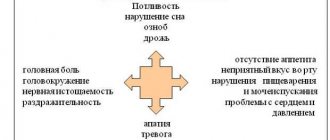Among all existing crimes, it is the murder of a person that is considered to be the most serious. It can only be mitigated by the court’s recognition of the fact that the offender committed murder in a state of passion. The release of strong emotions that cannot be controlled has a negative impact on the subject and is recognized by the court as a kind of separate type of crime, delimited from related offenses.
Note! If you have any questions, you can chat for free with our lawyer at the bottom of the screen or call the HOTLINE. Free call for all of Russia.
What is affect?
The concept of affect in criminal practice implies a narrowing of a person’s consciousness with subsequent harm to the victim’s health of varying degrees of severity, up to and including murder. It causes complete prostration and loss of connection with one’s actions against the background of sudden strong emotional stress on the psyche, which results in stress, unbearable pain, and overexcitement.
In a situation where this condition manifests itself, the cause that causes it is not any mental illness. According to doctors, it cannot be characterized as one of the criteria for insanity. Its vivid external manifestation gives an understanding of the level of instability of the nervous system at the time of the commission of a crime.
Three degrees of affect:
- Cumulative , provoked by the use of alcohol, drugs or other drugs with a similar effect on the human body;
- Pathological , arising as a result of existing mental illnesses and implies an absolute loss of control over the actions being performed;
- Physiological , manifested as the body’s response to external stimuli, but with maintaining an understanding of the actions being performed.
The described varieties differ from each other in the time interval that separates the moment of exposure to the stimulus and the subsequent response in the opposite direction. On average, its duration is several minutes.
What the Criminal Code of the Russian Federation says about murder in a state of passion
The Criminal Code of the Russian Federation has Article 107, which describes the state of a killer, called passion. It consists of two parts.
- The first talks about a murder committed at a moment of great shock, which is provoked by stress. The degree of violence against the perpetrator and the immoral actions of the victim against him are described. In such a situation, the punishment is both imprisonment for a period of up to 3 years and correctional labor for a similar period.
- The second part of the article describes the murder of two or more persons, also committed in a state of passion. Punishment involves correctional labor for a period of five years or imprisonment for the same period.
Who needs statistics and why?
In 2011, the United Nations Office on Drugs and Crime conducted its first large-scale study of serious criminal offenses. Until that time, there was no regular monitoring of the number of murders in the world. The data obtained allowed us to get a general idea of crime and understand how safe the society is. An international ranking of countries was formed based on the number of murders per year per 100 thousand people. It has become a kind of assessment of the level of life safety in different states.
Thanks to the data obtained, the UN and WHO were able to develop preventive measures and develop recommendations to reduce this type of crime.
In Russia, recording murders is the sphere of activity of the Ministry of Internal Affairs. The department keeps a count of serious and especially serious crimes. Executive authorities can assess the dynamics of violent crimes and the real number of criminal deaths in the country.
Homicide data is of particular interest to the media. The press is the first to inform the public about the level of security in the country.
For sociologists, information about those who commit murders is also valuable because it reflects the level of cruelty in society. And data on those killed is a source of information about people at risk based on gender and age.
Signs of murder in a state of passion
Observing a person, one can note a sudden loss of the ability to think and soberly assess the situation. Movements become active and tense. Speech becomes confused, rises to a scream or unintelligible scream, there is convulsive swallowing of parts of a sentence, and loss of train of thought. At the moment of climax, you can notice a complete loss of self-control.
Every murder committed in a state of passion entails mitigation of responsibility due to the presence of two circumstances during its commission:
- unacceptable immoral or provocative actions of the killed person;
- severe mental stress of the defendant, provoked by the immoral behavior of the victim.
In moments of difficulty, when the court cannot independently determine the degree of psychological trauma of the criminal, an independent comprehensive examination is forcibly ordered. With its help, you can determine the degree of sanity of the offender.
An equally important point is the analysis of the degree of inadequacy of the victim’s actions, which contributed to the defendant’s stressful state. These include, as noted in the legislation, grave insults, regular immoral acts, violence, both physical and moral, continuing for a long time.
Commentary to Art. 107 Criminal Code
1. This act refers to murder under mitigating circumstances, which is due to the special mental state of the perpetrator (he has a reduced ability to control his actions), caused by the behavior of the victim himself. In each case, it is necessary to establish that the affect (strong emotional disturbance) was sudden and occurred as a result of the reasons specified in the law, caused by the behavior of the victim.
Violence can be either physical (beatings, harm to health of varying degrees of severity, kidnapping, etc.) or mental (threat of murder, harm to human health, destruction or damage to property, dissemination of slanderous information, etc.) .
Bullying usually means mockery, mental and physical violence, which is cynical in nature and committed over a more or less long period of time.
Grave insult - humiliation of the honor and dignity of the perpetrator on the part of the victim, expressed in an indecent form; recognition of the insult as grave is an evaluative sign. Assessing the severity of the insult that provoked an affective state is the prerogative of the investigative authorities and the court, and both objective and subjective factors must be taken into account.
Other illegal actions (inactions) on the part of the victim are gross violations of the rights and legitimate interests of the guilty person, his loved ones, society and the state. It does not matter which branches of law are violated by the victim.
Immoral actions (inaction) should be understood as such active or passive behavior of the victim, which contradicts the generally accepted norms of morality and morality in society.
An affect-forming factor can also be a long-term psychotraumatic situation that arose as a result of the systematic illegal or immoral behavior of the victim. Affect can be the result of long-term, time-extended hostile relationships between the perpetrator and the victim. The situation gradually escalates as a result of repeated illegal or immoral behavior. The most recent act: scandal, insult, beating, etc. - becomes the drop that overflows the patience of the guilty person, an explosion of emotions occurs, a crime is committed as a response to the behavior of the victim.
Qualification of murders in the SA
Unlawful actions carried out under the influence of this condition have a specific characteristic. Their peculiarity is the fact that they are limited by the time of exposure of the body to an unstable state provoked by stress.
An important sign for qualification is an unexpected, for the criminal himself, a sharply emerging feeling of aggression. It should not have time intervals with the manifestation of the stimulus.
For the court to recognize the presence of passion at the time of committing a crime, the perpetrator must confirm his temporary inability to think soberly by presenting irrefutable evidence. These facts will be critical at sentencing. They, together with the reasons that provoked the loss of control, influence the degree of punishment.
If they are absent, the case is stopped until the qualifying features are clarified. In addition to the listed reasons, additional information that occurred during the commission of the crime is taken into account:
- the number of completed years of the defendant;
- frequency and intensity of irritating situations in communication with the victim;
- duration of toxic effects on the accused;
- the severity of the cause that caused the disturbance in the perception of the situation;
- speed of response.
In addition to the reasons listed, blackmail, abuse, slander, psychological pressure, abuse of power, and public humiliation can cause a person to commit illegal actions.
Qualification of the crime
In order for the court to recognize the defendant as having an affective state, irrefutable facts must be provided confirming the commission of an act of deprivation of life due to temporary insanity, which is of great importance in determining the term of punishment. Conviction is possible only if the qualifying criteria are proven. Also, the investigative commission must indicate the reasons why the killer lost control of himself. In the absence of facts, consideration of the case by the court may be postponed until the qualifying criteria are determined.
In addition to the reasons for the crime committed, which were listed above, the following are taken into account:
- how serious was the reason due to which the defendant lost control of himself;
- how long the traumatic effect lasted;
- how often the irritating factor occurred;
- how fast the response was;
- age of the accused (for deprivation of life for this reason they are charged from 16 years of age).
The object of the crime in this type of murder is human life. The objective side is defined as follows: the death of a person was caused under the influence of sudden external factors that had a negative impact on his psyche. According to judicial practice, murders committed due to strong emotional disturbance make up 15% of the total number of solved cases.
What is the difference with murder by negligence or insanity?
At the time of committing a crime in a state of passion, the subject retains a partial ability to evaluate his actions, except in cases of the pathological degree of this state. This is precisely the difference between this type of murder and a crime committed by insane defendants.
Being in a state of inadequate perception of the situation, due to mental illness, the person committing the crime is not aware of the actions being performed and their consequences. Murder by negligence, in contrast to the previous two options, implies a certain non-intentional action, or inaction, as a result of which the death of another person occurred.
Extenuating circumstances
Mitigating circumstances include: physical violence, grave insult, bullying and other immoral or illegal actions of the victim.
Composition of the crime in the SA
The fact that such a crime has been committed implies the presence of mitigating circumstances. The difficulty lies in the ability to confirm the presence of affect. To determine the corpus delicti, at the time of consideration of cases of such defendants, attention is paid to the following characteristics:
- the life situation of the deceased;
- the circumstances of the defendant's life;
- age and health of the conflicting parties;
- the duration of the negative impact on the defendant;
- the complexity of the situation that contributed to the crime;
- the illegality of the victim’s actions and their seriousness.
This information helps to understand the current situation and see much more deeply the reason that caused the commission of criminal acts.
How to prove that the murder was in a state of passion
Judicial practice is full of situations where, after a long period of experiencing aggression and bullying, a person found himself in a stressful situation, which turned out to be the final straw.
After committing unlawful acts, the person was found innocent. How can you prove that the murder was committed in a state of passion?
- A long period of difficult relationships between people. Present scandals, quarrels, humiliations, insults contribute to the emergence of a depressive state and a threat to life. There are cases when the criminal himself receives serious injuries after a conflict with the victim.
- Confused attention under stress directly indicates the presence of a state of affect. At this moment, all emotions and aggression are concentrated on only one object - the irritant. This provokes isolation from what is happening and an incorrect interpretation of the situation.
- Manifestation of confusion and pronunciation, loss of self-control, sense of time and reality.
- A mandatory factor in the state of excessive stress is loss of strength, loss of energy and tremors of the limbs. Pale skin indicates the outflow of blood from tissues due to vasospasm.
- Often people who are usually patient, polite and not prone to hysteria are prone to such actions.
To support the information received, attorneys may prepare appropriate documentation to subpoena witnesses who can clarify problematic situations.
Peculiarities
The period of punishment that a murderer who has deprived another person of life must suffer is determined according to the Criminal Code of the Russian Federation by the crime, taking into account many factors. At the same time, the courts must take into account that the difference between punishment for depriving a person of life (Article 105 of the Criminal Code of the Russian Federation) and punishment for murder committed in a state of passion (Article 107 of the Criminal Code of the Russian Federation) lies in the awareness of the very fact of depriving a person of life. With severe emotional and mental shock, the perpetrator does not realize the illegality of his actions, there is no selfish goal as such, and the offender does not plan his actions.
The peculiarity of crimes of this kind is that they are the result of active actions under the influence of the moment. But this does not exclude the possibility that some interested party did not have a lasting psychological impact on the offender. Whether there was influence from third parties or not, what harm it caused to the psyche of the defendant is determined by judicial workers.
In addition, murder in a state of passion is not committed by prior conspiracy by a group of people, since actions during strong excitement are committed spontaneously by the perpetrator.
The courts recognize that collateral aggravating circumstances in the proceedings of cases related to Article 107 of the Criminal Code of the Russian Federation are not taken into account, since they do not occur.
Examples from judicial practice
Judicial practice includes many situations in which the state of passion manifested itself as a result of both an immediate psychological reaction to a stimulus and a cumulative one. Of the total mass, such cases make up at least 15%.
- There are common cases when, after the start of a conflict and the emergence of a situation, it is necessary to provide resistance for self-defense (Part 1 of Article 114). With a gradual increase in the level of aggression, permissible limits are exceeded, and the provocateur dies as a result of criminal acts committed against him in a state of passion. Violation in such a situation is determined according to Art. 107. This is explained by the fact that the murder occurred after the occurrence of the corresponding condition and is assessed by the final actions of the offender.
- While moving around the hostel, citizen M received several blows to the head with a bottle from citizen Ch. After a cut to the head and the appearance of blood, M began to actively resist and, succumbing to panic, beat him until he received injuries incompatible with life. Citizen M was given a certificate by experts stating that his actions were caused by aggression that arose in a state of passion. Based on Article 107, the person who resisted would be given a punishment, but in this situation the verdict is considered to be self-defense as a result of an attack at the moment of a sudden manifestation of a state of passion.
- As a result of fraudulent actions and the impact on the mental state of the accused's wife, the man killed a fortune teller whom he had approached several years earlier. She demanded money and constantly interfered in the defendant's family affairs. During this period, he was subjected to blackmail and pressure from the deceased. The described case shows a situation of manifestation of a long period of negative impact.
- During a family quarrel, the younger brother, after beating his mother, was killed by the elder. Death occurred as a result of a knife blow. In this situation, there was a sudden manifestation of a state of passion in the older brother in response to the unacceptable crime of the younger brother. Such a case is considered as immoral behavior that cannot be applied to people.
Third commentary to Article 107 of the Criminal Code of the Russian Federation
1. This crime is murder with mitigating circumstances. When assessing a murder committed in a state of passion, one should distinguish physiological from pathological affect. The latter is characterized by a deep clouding of consciousness, while the person is not able to account for and manage his actions. Such a subject is declared insane. Physiological affect characterizes strong emotional excitement, which: a) arose suddenly; b) caused by violence, bullying or grave insult or other illegal or immoral actions on the part of the victim. A state of strong emotional excitement means that in the psyche of a healthy person a mental reaction occurs rapidly and violently - an “emotional explosion” of rage, anger, shock, in which conscious-volitional control over the choice of behavior is disrupted. As judicial practice recognizes, there should be no gap in time between the provoking behavior of the victim and the affect. Only in exceptional cases, taking into account special factors or in connection with a long-term traumatic situation, is a certain gap in time possible. When investigating such circumstances, a forensic psychiatric examination is required, and in particularly complex cases, a comprehensive psychological and psychiatric examination.
2. Violence can be either physical (hitting, beatings, arm twisting, tying up, rape, causing harm to health of any severity) or mental (a real and objectively feasible threat of physical violence). Thus, the Presidium of the Supreme Court of the Russian Federation in the case of K. indicated that G., intimidating with threats and beatings, broke her resistance and repeatedly committed violent acts of a sexual nature with her, which led her into a state of sudden strong emotional disturbance, during which she caused D. with two kitchen knives and two forks, 78 stab wounds to the face, neck, chest and abdomen, 28 of which were penetrating with damage to the heart, lungs, liver and other organs. G. died on the spot from his injuries. Nevertheless, K.’s actions were qualified under Part 1 of Art. 107 (BVS RF. 1999. N 5. P. 10, 11). Mockery and grave insult are evaluative concepts that can be recognized as such only when analyzing all the specific circumstances of the case. Other illegal actions are also possible that grossly violate the rights and legitimate interests of the perpetrator or his relatives (collision by a car driven by a drunk driver, blackmail, abuse of office, etc.). The immoral behavior of the victim is also an evaluative concept (in our opinion, a clear judicial interpretation is necessary here, and in this form, as indicated in the disposition of the article, a wide range of actions can be implied). A long-term psychotraumatic situation arises against the background of the above-mentioned actions of the victim. He systematically, over a long period of time, commits illegal actions against the culprit or behaves immorally, thereby traumatizing his psyche, provoking affective actions.
3. The subjective side is characterized by guilt in the form of direct or indirect intent, but it will always arise suddenly.
According to Part 2 of Art. 107 qualifies as the murder of two or more persons. It is necessary that the infliction of death on two or more persons be covered by a single intent and be committed almost simultaneously. The main criterion is the commission of these actions in a state of passion. Taking into account the explanations of the Plenum of the Supreme Court of the Russian Federation under this article, murder committed under the circumstances provided for in paragraphs “d”, “f”, “l” (only in terms of murder motivated by blood feud) should also be qualified. Part 2 of Art. 105. ‹ Article 106. Murder by a mother of a newborn childUp Article 108. Murder committed by exceeding the limits of necessary defense or by exceeding the measures necessary to apprehend the person who committed the crime ›
Punishment for murder in SA
Based on the moral pressure received, the criminal who committed the murder, under Art. 107, depending on the severity, may be punished as follows:
- correctional labor for a period of up to 2 years;
- restriction of freedom up to 3 years;
- forced labor for up to 3 or 5 years;
- imprisonment up to 3 or 5 years.
This measure is considered more loyal than when committing an ordinary murder, when the punishment is set in the form of imprisonment for 15 years.
Child murder statistics
In 2022, at one of the meetings of the Government of the Russian Federation, information was announced about the increase in the number of murders of children committed by parents. Over 4 years their number increased by 1.5.
In 2015, the figure was 2.5 thousand killed children per year. Today their number reaches 3.75 thousand people.
Statistics on infant homicides by year show a decrease in the number of crimes for the period from 2011 to 2015:
Murder statistics in 2016 include 72 such cases. According to the presented graph, one can also trace the dependence of crimes against newborns on the well-being of citizens: the peak of crime occurred in 1999. Today there is a significant decrease. This result was achieved through the opening of baby boxes, where a new mother, who for one reason or another cannot leave her child, can bring a newborn, saving his life.







